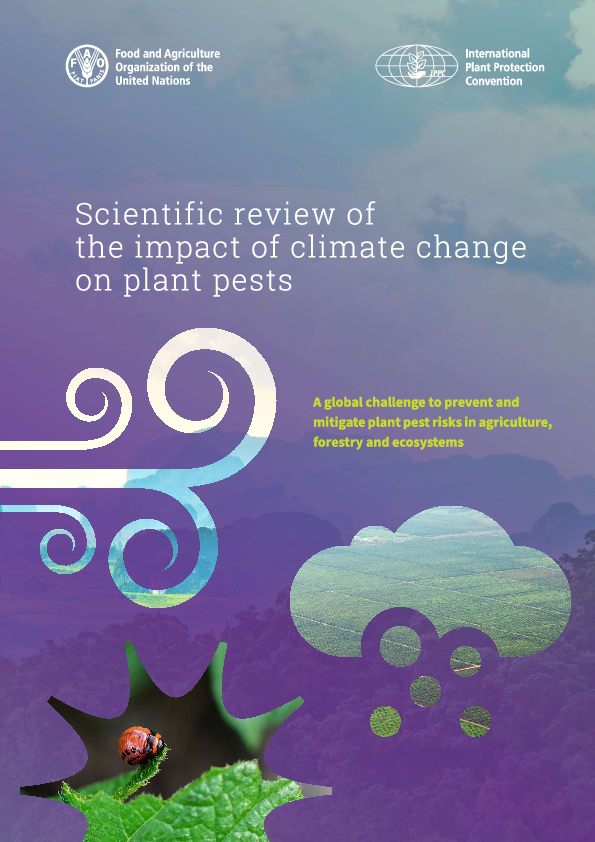 Read this article in French
Read this article in French- Share this article
- Subscribe to our newsletter
Impact of Climate Change on Plant Pests
Due to the impact of climate change, plant pests that ravage economically important crops are becoming more destructive and posing an increasing threat to food security and the environment, according to the Scientific Review on the Impact of Climate Change on Plant Pests - A global challenge to prevent and mitigate plant pest risks in agriculture, forestry and ecosystems. The review was prepared under the auspices of the Secretariat of the International Plant Protection Convention, hosted by the Food and Agriculture Organization of the United Nations (FAO) and published in June 2021.
The scientific review finds that climate change will increase the risk of pests spreading in agricultural and forestry ecosystems, especially in cooler Arctic, boreal, temperate and subtropical regions. For example, a single, unusually warm winter may be enough to assist the establishment of invasive pests.
Some pests, like fall armyworm (which feeds on a growing number of crops, including maize, sorghum, millet) and Tephritid fruit flies (which damage fruit and other crops), have already spread due to warmer climate. Others, such as the desert locust (the world's most destructive migratory pest), are expected to change their migratory routes and geographical distribution because of climate change.
The review analyses 15 plant pests that have spread or may spread due to climate change. Half of all emerging plant diseases are spread by global travel and trade, which have tripled in volume over the last decade, while weather is the second most important factor. Pests are often impossible to eradicate once they have established themselves in a new territory, and managing them is time consuming and expensive.
A number of recommendations to mitigate the impact of climate change on plant health are provided in the review. Chief among them, increased international cooperation is deemed crucial as the effective management of plant pests by one farmer or one country affects the success of others. Improved measures to limit the international spread of pests through trade and travel and adjustments to plant protection protocols are equally important.
The review also stresses the need for more research into the impact of climate change on pests and hence, on plant health; and for more investments in strengthening national phytosanitary systems and structures.
(FAO/ile)
Read more at FAO website





Add a comment
Be the First to Comment